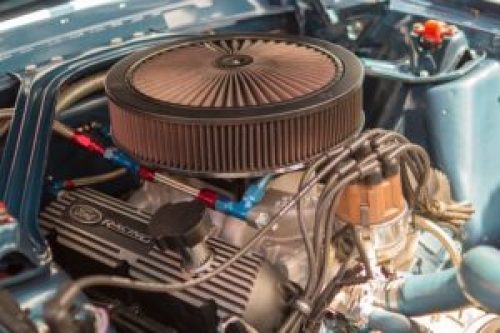July 14, 2018
Do You Remember When Cars Had Combustion Engines?
I do.
And it still shocks me when I look back on that time.
Let me explain.
In those days, it was taken for granted that motorbikes, cars and trucks were all noisy and highly polluting vehicles.
Everywhere these vehicles went, they left a trail of dangerous pollutants that filled our town and cities. Even schools were caught up in this onslaught, with parents regularly idling their cars while waiting or dropping off their kids.
It was a time when people felt that their personal freedom that came from using a car outweighed the environmental hazards the vehicles posed.
But it wasn’t just noise and air pollution that were a problem.

The combustion engine was a clever piece of engineering, but unfortunately, due to its hundreds of moving parts – maintenance was a nightmare.
All new cars needed regular (and costly) major services. But even this failed to prevent the countless breakdowns that could be seen everywhere from country roads to the hard shoulders of the motorways.
Older cars fared much worse of course. Owners of these vehicles faced a constant battle of trying to keep them going.
Repair… replace… repair… replace.
A frequent and expensive cycle that inevitably ended in the car being scrapped, due to it costing more to repair than its resale value.
If this wasn’t bad enough, the unfortunate owners of combustion engine vehicles had another challenge to face.
What was this?

The inconvenience and expense of filling up their cars with diesel or petrol.
Ask anyone who owned one of these cars, and they’ll tell you the troubles they had with filling up.
Firstly, there was the crazy pricing.
In the UK – just before the demise of the combustion engine – drivers paid more than £1 a litre (with over 60% of that price being swallowed up by government tax.) You may think this price sounds reasonable, but don’t forget inflation. In today’s prices, £1 then would be worth £1.73 now. And this money didn’t take the cars very far.
In fact, an average new car in those days could only travel a paltry 12 miles on a litre of petrol. This meant that a return journey from London to Manchester, for example, cost more than £35 (in yesterday’s money). Not cheap, by any standards.
But it wasn’t just the cost of fuel that was an issue. Petrol stations were notorious for being so busy that it wasn’t unusual to queue for five or ten minutes before being able to fill up. Compared to what we’re used to now, this was time-consuming and hugely inconvenient for drivers.
The combustion engine revolutionised travel, but at the same time it destroyed the serenity of nature and choked our towns and cities.
Thank goodness that electric vehicles came to the rescue.

